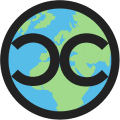
Collective Management and Governance in the Digital Environment
The piece of work by Marcos Wachowicz and Alexandre Pesserl entitled “Collective Management and Governance in the Digital Environment” aims to introduce the reader to some of the legislative solutions regarding collective copyright management mechanisms in the digital environment around the world – in regions such as China, the United States, Canada, Latin America (the emphasis is given to Brazil) and the European Union.
The collective copyright management system studied here was analyzed from two perspectives: aimed at the holder of rights and also with a closer look at the user’s situation. In the digital environment the latter is liable to use works of third parties, once this conduct is facilitated. In addition to phenomena such as dilution of authorship and confusion between author and user, there is also a whole ecosystem of “many-to-many” creation and diffusion materialized in Web 2.0 concepts. This leads to the need for answers from an author’s legal system created under “one-to-many” broadcast logics.
Due to this possibility of addressing accountability to the user for digital uses, collective management system in such an environment needs to balance the possible forms of control at the most varied levels offered by the network, and the limits and exceptions to be imposed on the exercise of copyright. This way, a balance between the protection of holders of rights and the freedom of the user can be established.
The past decades have demonstrated the rapid expansion of the copyright consumer market in the digital environment through the combination of technologies such as the Internet, mobile telephony and accessible and globalized services, which results in the need for persuasive mechanisms for legitimate and reputable practices.
Therefore, the point of departure of the present study by Marcos Wachowicz and Alexandre Pesserl is identification of the main international legal frameworks on copyright protection within the World Intellectual Property Organization (WIPO), collectively known as “Treaties”, as well as an analysis of its regulations on the subject.
By using their methodology, they list which countries have the greatest representation and relevance, as well as the changes in the internal norms of Public Law to implement the obligations of the Treaties (or even their absence), besides the collective management mechanisms used and their effects on the digital world.
The aim is therefore to outline the challenges of collective management in the digital environment, considering both the duty of the public manager to ensure that it happens in a balanced way and under legal parameters, and also the fact that market practices influence the legislative sphere, public interest, and especially the realization of the fundamental rights of authors and other holders and users.
This piece of work is the direct result of the research that gave origin to the Study Group on Copyright and Industrial Rights – GEDAI / UFPR – linked to the Graduate Program in Law of the Federal University of Paraná (PPGD / UFPR). The research focuses on the new challenges of protection of Intellectual Rights in the Information Society and is now being published because they were previously presented at seminars, congresses and events held in Brazil and abroad with the support of research funding agencies namely CAPES and CNPq.
GEDAI / UFPR was established with the main purpose of studying Intellectual Property in the Information Society. The comparative law perspective allows us to analyze the various systems of copyright and industrial protection, the processes of realization of cultural rights and cultural diversity, and also the adequacy of the regulation of intellectual rights in the face of the challenges of the Information Society.
Its objectives include the study of the effects resulting from the implementation of fundamental rights to culture and cultural diversity on contemporary society; the analysis of the enforcement and limits of copyright in the protection of immaterial goods; the legal protection of new intellectual goods arising from information technologies of innovation, inclusion and dissemination of knowledge; assessments of the consequences of the ongoing technological revolution and the advent of digital culture on copyright regulation; identification of the content of legal protection and the scope of the circulation of cultural production developed in public institutions.
The GEDAI / UFPR Group brings together researchers, masters and doctors who dedicate to the study of various areas of Intellectual Property, establishing a true exchange network between national and foreign institutions. In order to intensify this research exchange, GEDAI / UFPR is involved in projects with various academic teams from other Brazilian and foreign higher education institutions and research groups.
In order to broaden the studies and circulation of its works on issues related to Intellectual Property and its challenges in the Information Society, GEDAI / UFPR presents bilingual versions (Portuguese and English), so that researchers from other nationalities will be able to integrate in this large research network and academic publication. With a global look research and publications GEDAI / UFPR promotes spaces for creation and collective sharing, available through the Internet at www.gedai.com.br with free download of their works.
Considering all the above, reading this book is fundamental and indispensable for the elaboration and construction of concepts that perceive the technological transformations in the current Information Society, being equally indispensable for the students of the subject of legal protection of Copyright Law.
Enjoy your reading!
Donwload free link :
Gestão coletiva e governança no ambiente digital – inglês_ebook







